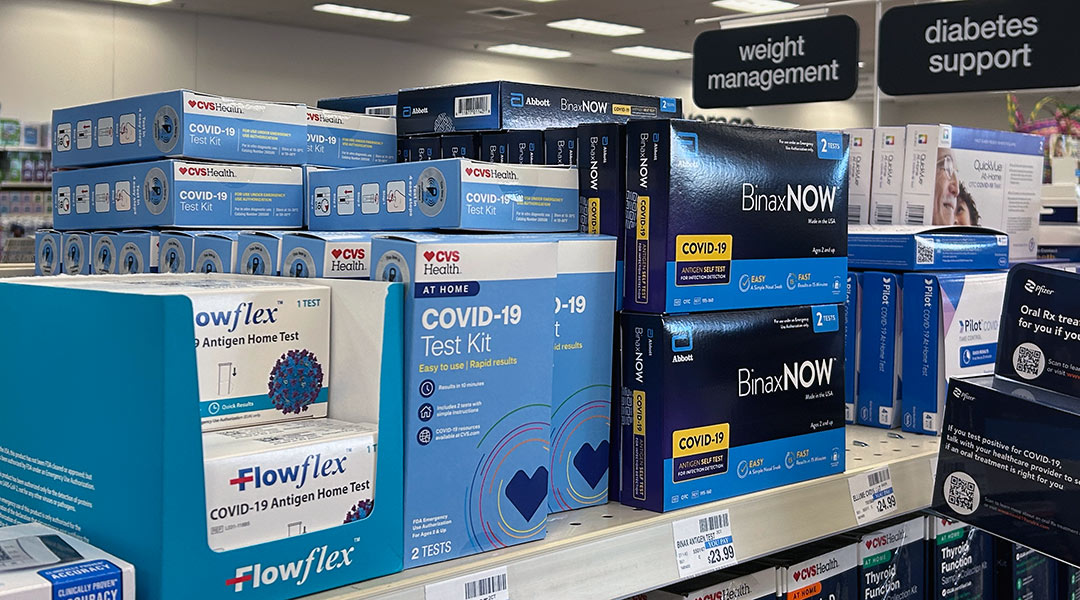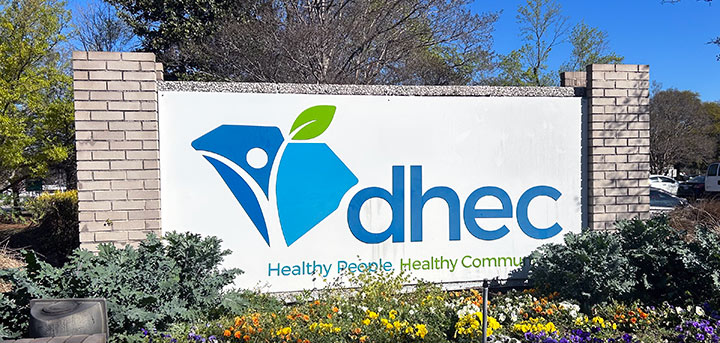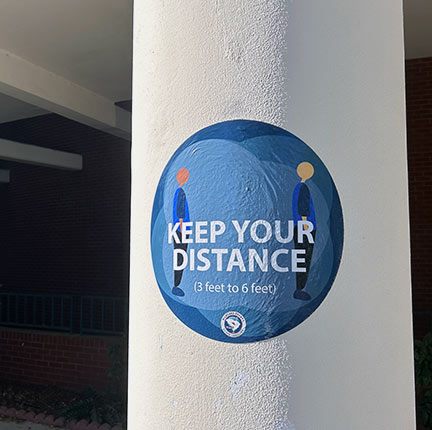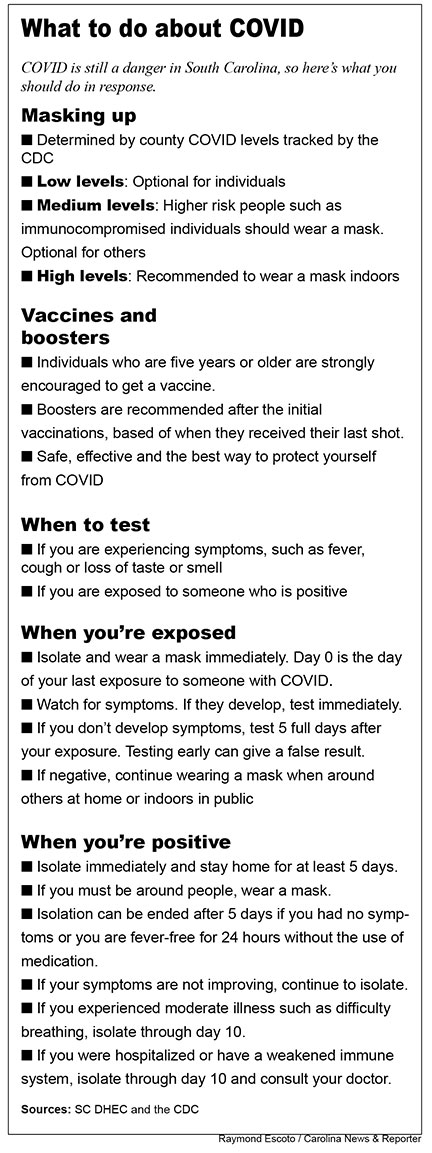Various at-home COVID tests on a store shelf. If you experience symptoms, test immediately, doctors say. (Photos by Raymond Escoto)
It has been three years since South Carolina declared a state of emergency and closed schools as COVID hit.
But the disease is still present and deadly, despite much of public life returning to normal.
“We are in the early stages of an endemic condition,” said Brannon Traxler, a physician who is director of public health for the South Carolina Department of Health and Environmental Control. “I think COVID-19 is here to stay, permanently.”
The CDC defines endemic as “the constant presence and/or usual prevalence of a disease or infectious agent.”
Yet the switch to a less-prevalent but omnipresent disease doesn’t make it less dangerous for public health.
There’s not going to be an official end, when society has eliminated the spread of the virus in people, Traxler said.
“Endemic COVID is better than pandemic COVID, but that doesn’t mean it’s good by any stretch of the imagination,” Helmut Albrecht said.
Albrecht is the Heyward Gibbes Distinguished Professor of Internal Medicine at the University of South Carolina’s School of Medicine. He’s also the medical director for Prisma Health’s and USC’s Center for Infectious Disease Research and Policy.
Endemic diseases, such as HIV-AIDS, are still dangerous to the public, he said.
Traxler and Albrecht said getting vaccinated is the safest and most effective precaution against COVID.
But only 59% of South Carolina’s population is vaccinated, according to the New York Times.
Several counties’ numbers are less than 50%. That’s the problem, Albrecht said.
“It’s fairly obvious that it’s a massive danger,”he said. “We got to think about others first.”
Younger people are a source of these percentages, he said.
“They feel invincible, and therefore don’t get vaccinated,” he said. “It’s Russian roulette. … And most people think that COVID is safe. But for a few, and a significant few, it’s not.”
There were 1,892 cases and 13 COVID-related deaths in South Carolina between March 11 and March 18, according to DHEC’s COVID tracker.
Both Traxler and Albrecht said the low vaccination numbers present the dangerous possibility of a COVID variant emerging that the current vaccines won’t be able to protect as well against.
“Ignoring the problem is a great way of making a problem bigger,” Albrecht said of those who won’t get vaccinated.
He also said if a new variant comes around and makes the current vaccines “null and void,” pharmaceutical companies such as Pfizer and Moderna will be much quicker in creating a new shot.
But avoiding the scenario of the current vaccines becoming useless should be the priority, he said.
Traxler agrees.
“I continue to encourage (getting) the vaccine and staying up to date,” Traxler said.
DHEC attends many festivals and public gatherings, offering free vaccination clinics while people are having fun.
Traxler said she continues to remind people to make educated decisions based on accurate facts for what’s best for them and their loved ones.
The spread of misinformation, lack of good communication about facts and politicization and disruption of science surrounding COVID is disturbing, Albrecht said.
“Five minutes on Google is not a scientific degree,” he said.
The COVID vaccine likely will be a once-a-year shot, like the flu shot, starting in the fall, Traxler said.
The good news is that means COVID is no longer socially disruptive and doesn’t overwhelm the healthcare system’s resources, Albrecht said.
Lisa Boyd, a medical technologist at Roper Hospital in Charleston, is glad COVID is no longer overwhelming.
She works in the hospital’s lab that is responsible for running different kinds of medical tests, including ones for COVID.
“It just seems like everybody has kind of calmed down a bit,” she said. “The ER doesn’t call as soon as a specimen hits the lab. They let us run it, and it just seems more organized.”
Albrecht already is looking toward to being prepared for the next pandemic. But constant vigilance is a must.
“We have to stop dismantling public health whenever the crisis is partially controlled,” he said.





